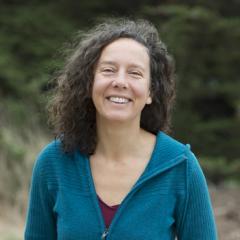About Eunice's Work
Eunice is an Associate Professor of Anthropology and Environmental Studies at Whitman College in Walla Walla, Washington. She completed her Ph.D. in cultural anthropology at the University of California Santa Cruz and has taught at the University of Washington's Program on the Environment, and held fellowships at the Rachel Carson Center for Environment and Society in Munich, GWZO Leibniz Institute Center for East European Culture. For more than 25 years she has been researching and writing about conservation politics in Europe. She studies how humans recover ecologies, use forests, and conserve nature with a focus on nationalism, posthumanism, and postsocialism. The abiding concern of her scholarship and activism has been cultural change-how do people shift identities, especially where borders crossed people and ghosts from the past trouble the way forests are used and protected. Her book, Foresters, Border and Bark Beetles: The Future of Europe's Last Primeval Forest https://iupress.org/9780253049605/foresters-borders-and-bark-beetles/ reaches into this topic as well, at the Polish Belarusian border in the ancient Białowieża Forest. With filmmaker Jodie Baltazar she produced and directed a documentary film, 'Black Stork White Stork' which traces the fate of an innovative aging bachelor in Europe's last primeval forest, Białowieża https://www.youtube.com/watch?v=2bW8Qm3JvqY . She has won grants for her research and teaching from NSF, Fulbright, the Andrew W. Mellon Foundation, the Ford Foundation and the Switzer Foundation. Other research experiences include studying private and public land distinctions in the State of Maine, how the commons are constructed along Warsaw's Vistula river banks, and how historical pogroms interact discursively with nature conservation in Poland. Her experiences working for US-based land management agencies, including the National Park Service, the U.S. Forest Service Pacific Northwest Research Station, and the Washington State Department of Natural Resources have helped her develop interdisciplinary approaches to environmental problem solving. Her goal is to help people embroiled in nature conservation conflicts better understand themselves, those they are in conflict with and the globally interconnected world that frames their conflict.
